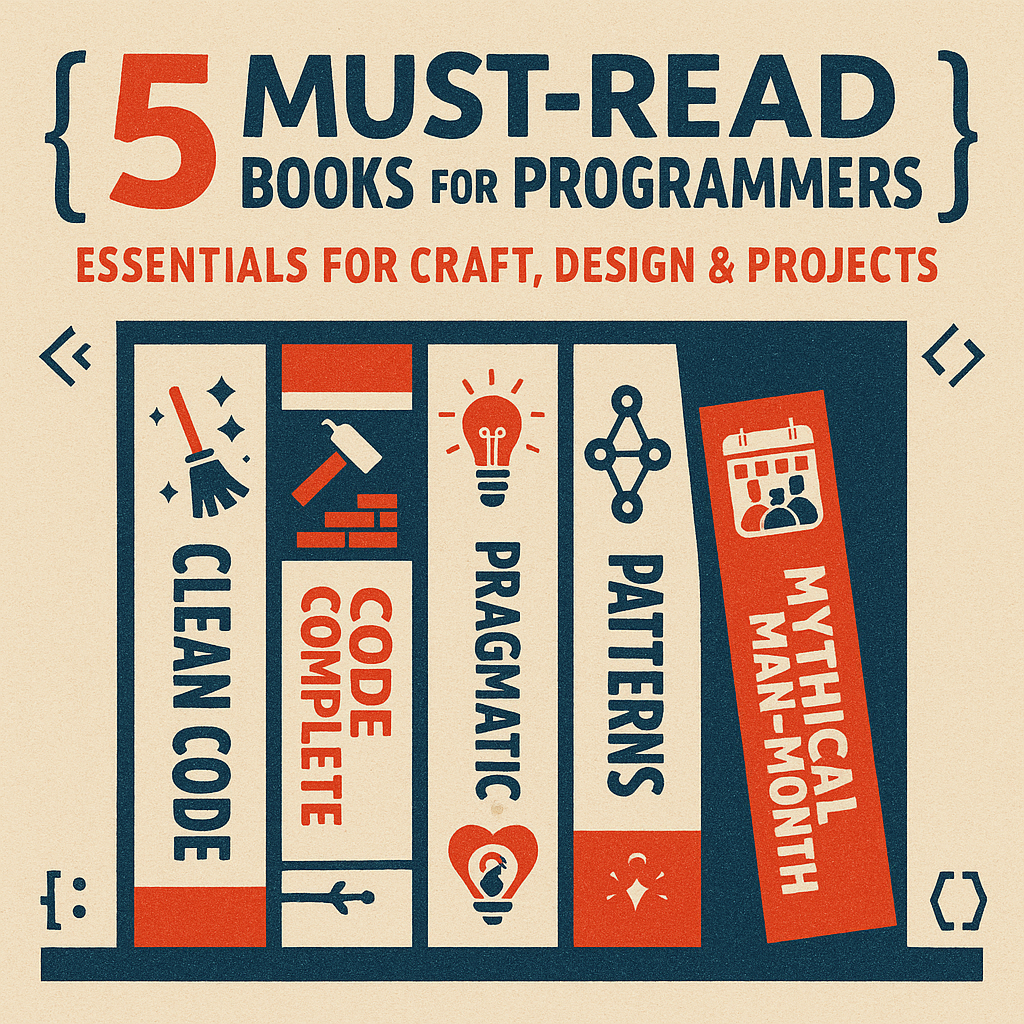Reading books is an excellent way to improve your programming skills, learn new techniques, and gain a deeper understanding of the underlying principles of software development. In this article, we will explore five books that every programmer should read to enhance their knowledge and stay ahead in this fast-paced industry.
1. Clean Code” by Robert C. Martin
“Clean Code” is a must-read book for any programmer who wants to write clean, readable, and maintainable code. The book presents a set of best practices and guidelines for writing high-quality code that is easy to understand and modify. It covers topics such as naming conventions, comments, functions, and classes, and provides practical examples and case studies.
2. “Code Complete” by Steve McConnell
“Code Complete” is a comprehensive guide to software construction, covering all aspects of the development process from design to testing. The book provides practical advice and tips for writing efficient, reliable, and maintainable code, and includes case studies, examples, and checklists to help you apply the concepts to your projects.
3. “The Pragmatic Programmer” by Andrew Hunt and David Thomas
“The Pragmatic Programmer” is a classic book that has been praised for its practical advice, timeless wisdom, and engaging style. The book covers a wide range of topics, including debugging, testing, automation, and teamwork, and provides concrete examples and real-world anecdotes to illustrate the concepts.
4. “Design Patterns: Elements of Reusable Object-Oriented Software” by Erich Gamma, Richard Helm, Ralph Johnson, and John Vlissides
“Design Patterns” is a seminal book on software design patterns, providing a catalog of reusable solutions to common design problems. The book covers 23 patterns, including the Singleton, Factory, and Observer patterns, and explains how to apply them to real-world scenarios.
5. “The Mythical Man-Month” by Frederick P. Brooks Jr.
“The Mythical Man-Month” is a classic book on software project management, providing insights and lessons learned from the development of IBM’s System/360 operating system. The book covers topics such as project planning, scheduling, estimation, and team communication, and is still relevant today, more than 40 years after its initial publication.
In conclusion, these five books provide valuable insights and guidance for programmers at all levels of experience. Whether you’re a beginner or a seasoned developer, reading these books will help you improve your coding skills, develop a deeper understanding of software development principles, and gain new perspective

Leave a Reply